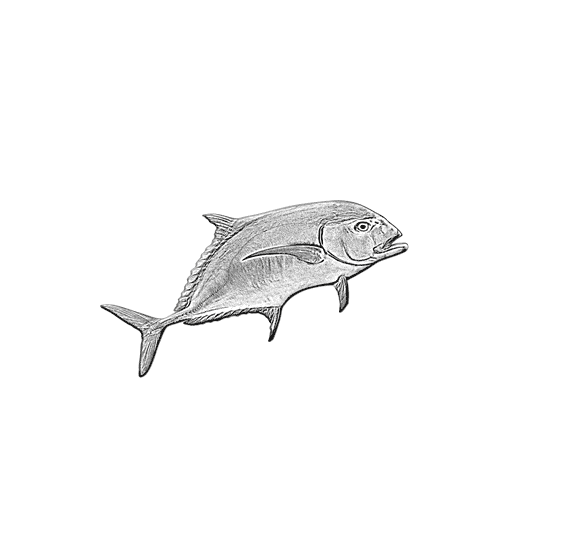8 Reasons Why You Can’t Catch Fish
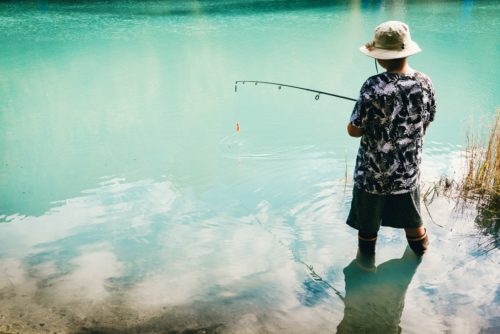
Fishing is a relaxing and fun pastime that many people love. Those who adore fishing are delighted when they reel in even one large fish on their outings. Fishing may be enjoyed and learned by people of all ages and genders.
Not being able to catch fish is one of the biggest problems of fishing. Countless people spend more time sitting than they do fishing. If you’re one of them, you’re undoubtedly asking yourself, “Why can’t I catch fish?”
The top eight reasons why you aren’t catching fish will be discussed in this post.
1. Not Enough Water Coverage
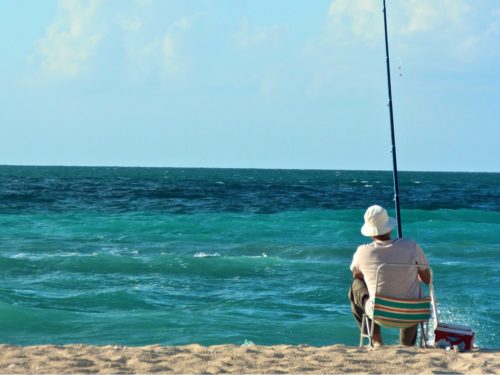
Many anglers are guilty of going too slowly when fishing. While leisurely fishing is a wonderful pastime, it might have an influence on the number of fish you catch. Expanding the area of water you cover will help you improve your fishing results.
Every pond or lake will have its boundaries. You’ll want to cover as much of the water as you can. Many anglers will dock their boats in the same position for the duration of their vacation. However, once the fish have detected the anglers, they are likely to flee the area.
By covering more water, you can catch fish of various species and sizes. You never know what lurks under your neighborhood lake’s surface. However, if you refuse to leave your preferred area, you will not be able to catch a diversity of fish.
Set a goal for yourself to cover as much water as possible throughout your journey. If the fish aren’t biting in one spot after a few minutes, switch to another. If you wish, you may always go back to the previous section. However, by moving about often, you may get a good sense of the fish in the region.
A balance between not covering enough water and going too rapidly, needs to be drawn. Patience and planning are also important aspects of fishing. It’s critical to cover enough water. However, keep an eye out for key hints about the number of fish in the region.
2. Experimenting with New Techniques at Inopportune Times
There are many different types of fishing tactics. Knotting, baiting, casting, and other fishing tactics are among them. Putting these ideas into practice is a terrific way to enhance your fishing abilities.
There is, however, a time and a place to begin honing your skills. You won’t want to test out a new talent on a fishing trip if you’re under pressure to catch fish for dinner.
Fishing as a pastime allows you to experiment with new tactics without restriction. Fishing for sport or putting food on the table, on the other hand, necessitates the achievement of a goal. You’ll need to be confident and efficient to achieve that aim.
On leisurely fishing outings, anglers should practice all of their new skills. Specific fishing tactics can even be practiced at home. However, if you’re going into a high-pressure situation, you’ll want to be confident. The greatest approach to gain confidence in your abilities is to try them when you feel comfortable.
3. You Don’t Have a Plan in Place

One of the most common blunders that anglers make is failing to plan out their fishing excursion. Fishing with your pals is one thing, but if you’re fishing for sport, you’ll need a game plan.
There are many factors that go into a successful fishing trip. As a result, there are several approaches to fishing. The location, season, and weather may all influence the outcome of a fishing expedition.
Setting off on a fishing expedition without a strategy is a certain way to wind up with no fish.
Your plans do not need to be elaborate or lengthy. You’ll want specifics, but your strategy doesn’t need to be flawless. Mostly, you’ll need a map to show you where you’re going and what you’re doing. It’s also not necessary for your plan to follow a formula. Your strategy should be tailored to your specific objectives for the day.
For example, if your aim for the day is to practice your technique, you should make a strategy for how you will get there. What exactly will you require? Do you intend to fish in shallow or deep water?
Similarly, if your aim is to catch at least three fish, you must devise a strategy to achieve that goal. Will you be visiting the ocean, a river, lake, or pond? How many people are planning to attend? Is it from a boat, a dock, or shore that you’re fishing? In which regions do you intend to fish? How long do you intend to spend fishing in those areas?
Filling in the important aspects of a plan is a great approach to guarantee that it succeeds. You don’t need to provide a lot of information in your strategy. A strategy might get muddled if there are too many specifics. You also don’t want your strategy to be overly ambiguous.
4. Having Bad Fishing Line and Knots
Another common blunder made by anglers is how they manage their fishing lines and knots.
It may take some practice to learn how to make a knot and utilize a line effectively. The knot you tie must be compatible with the line you’re using. If the knot is not appropriate for your line, it will most likely break. Even the right knot might potentially break if you don’t tie the knot correctly.
The strength of various knots and lines varies.
If you surpass the line or knot strength, your line will quickly break. In these situations, replacing the line might take up a lot of time. Worse, a broken line might spoil your whole fishing vacation.
As a result, using substandard lines and knots is a surefire method to catch no fish. However, if you want to increase the number of fish you catch, you need start with the basics. Unfortunately, many anglers do not devote enough time to honing the fundamentals. While your knots and lines may be adequate, they can almost certainly be improved. Practice is a great way to enhance your knot-tying abilities. On your leisurely vacations, you can practice with friends and family members. Even seasoned anglers might benefit from brushing up on their knot-tying abilities.
When it comes to fishing, there is a lot more complexity and skill involved than many people believe. Practice such methods if you want to be a competent fisherman. Patience, practice, and hard effort are all important aspects of being a competent fisherman.
While some individuals have luck on their fishing trips, the number of fish you catch is mainly determined by how you approach the trip.
5. Choosing the Wrong Color
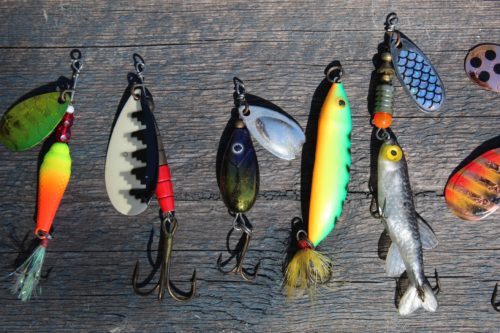
It might surprise you to learn that something as minor as color can have a significant influence on your fishing results. Some fish are drawn to certain hues. The color red, for example, attracts bass. Similarly, certain colors might deter fish.
If you’re having trouble getting the fish to bite, consider changing the color of your bait, or lure. You might be amazed at how much of a difference this change can make.
6. Not Properly Rigging Up For A Specific Species
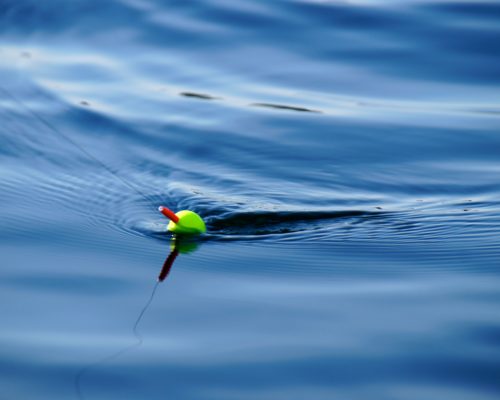
Aquatic life is varied, and can be very cunning. It’s not as straightforward as making a knot and throwing out your tackle to catch fish. Each species has its own unique manner of acting. Depending on where they are, even members of the same species might behave very differently. It’s critical to understand the waterways you’re fishing in and the fish that lurk beneath the surface.
You must tailor your fishing strategy and setup the specific circumstance based on the species you will fish for. Some species, such as mackerel, are known to be aggressive and hunt whatever they come across, but others are more cautious. By doing your homework, you’ll know what to anticipate when you arrive at your fishing spot, allowing you to plan the best approaches for the species that inhabit the area.
There is nothing wrong with having a good time fishing. However, if you want to increase the number of fish you capture, you must improve your abilities.
7. Temperature of the Water
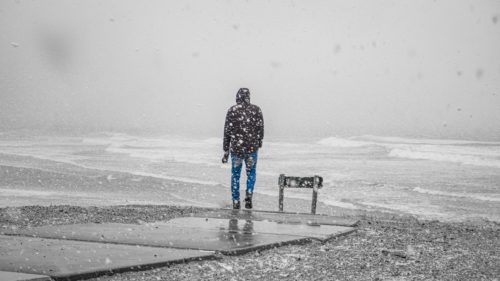
It may come as a surprise to hear that the water temperature has a significant impact on your fishing results. All freshwater fish are cold blooded, which implies that the temperature of their surroundings has a significant impact on them. Depending on the water temperature, these fish’s behavior, such as their activity level and feeding preferences, will fluctuate.
8. Ignoring the Need to Improve One’s Skills
The main reason you aren’t catching fish is that you aren’t putting in enough effort to develop.
Fishing does not need to be a total way of life. But those who regard it as an occasional pastime, on the other hand, will obtain sub-par results.
See also Best Braided Fishing Line , and Types of Fishing Lines .
